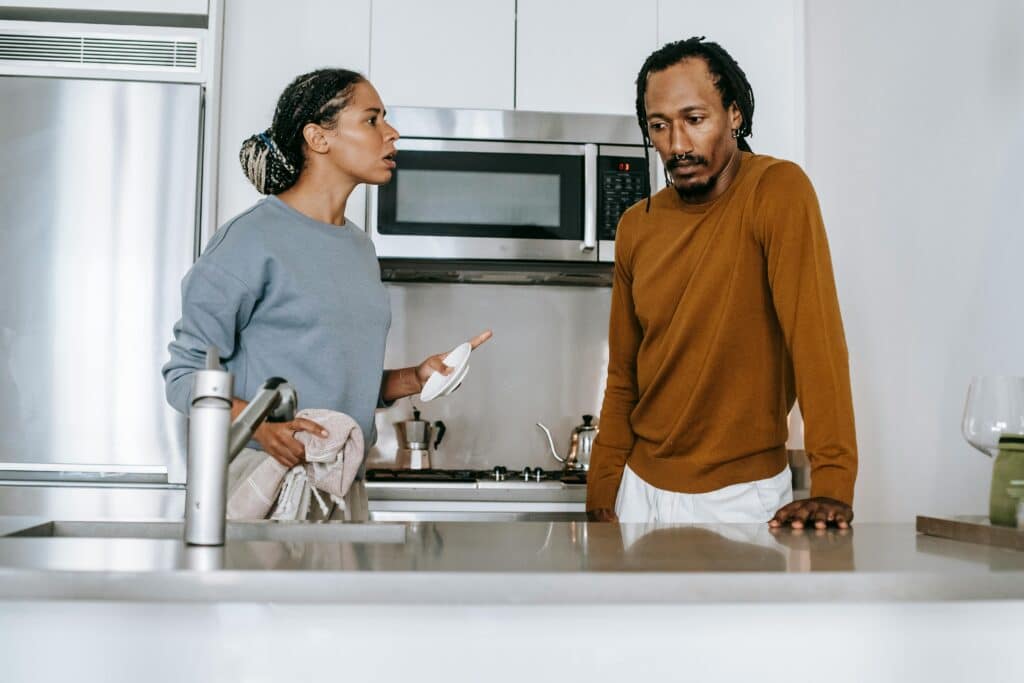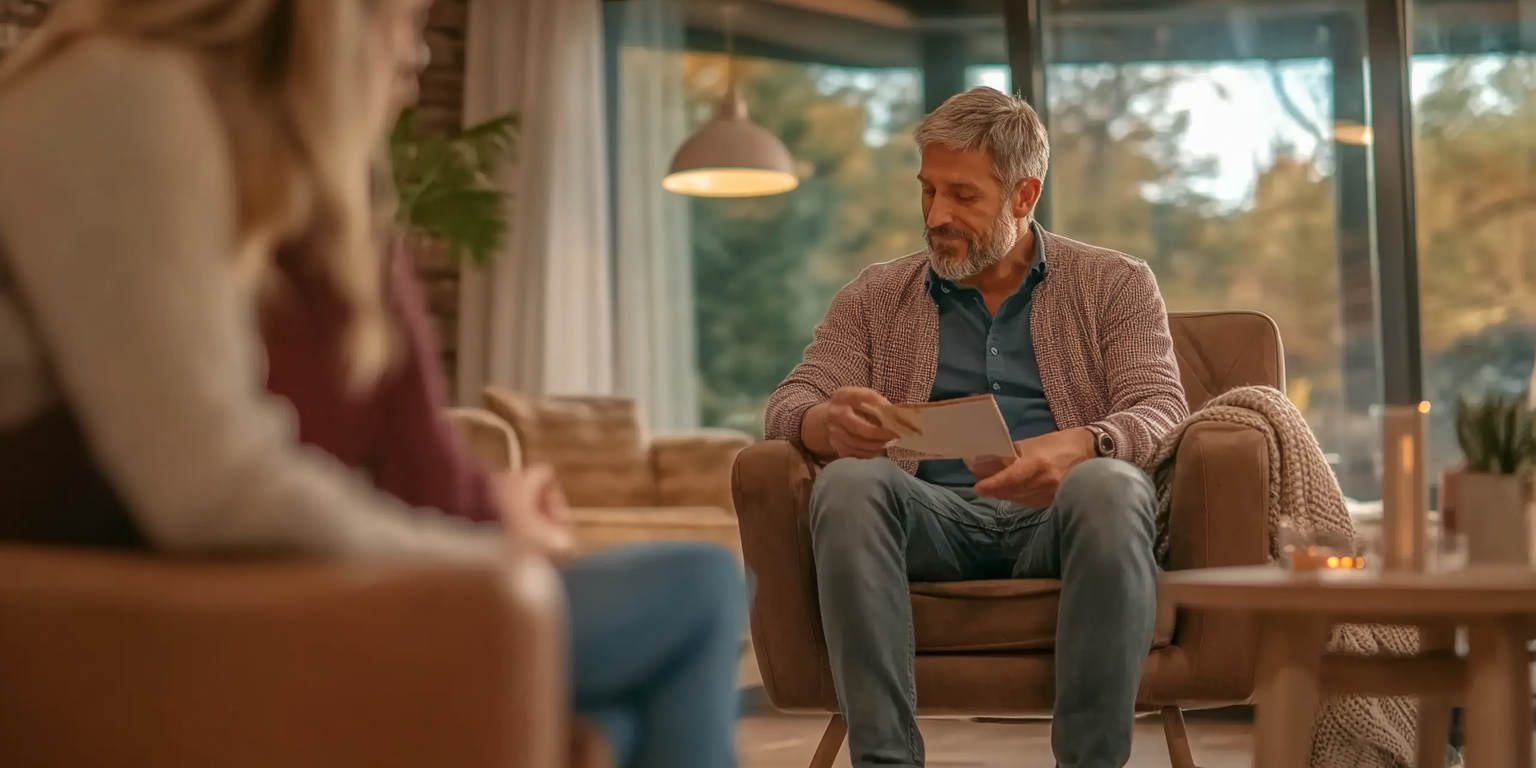4 Min Read
The Boiling Point: Why Small Couples Conflicts Escalate
Introduction to Couples Conflict Escalation: Why Minor Disagreements Can Lead to Major Arguments
Have you ever wondered why a seemingly trivial disagreement with your partner can sometimes spiral into a full-blown argument? It’s not uncommon for couples to find themselves in heated conflicts, starting from what appears to be a minor issue. This escalation not only strains the relationship but can also leave both partners feeling misunderstood and resentful. Recognizing the underlying causes of these escalations can help couples manage their responses and foster a more supportive and understanding relationship.
Understanding Couples Conflict Dynamics
Psychological Triggers of Couples Conflict
Conflicts in relationships can often trace their roots back to psychological triggers. These are emotional “buttons” that when pushed, evoke a strong emotional response. Perhaps it’s a comment that sounds too controlling, mirroring a controlling parent, or a casual remark that taps into deep-seated insecurities or past traumas. Understanding these triggers is the first step in managing how we react to them. Therapy and couples counseling can play a significant role in uncovering these sensitive areas, helping individuals understand their origins and develop healthier responses.
Communication Breakdowns in Relationship Conflict
A common culprit behind escalating conflicts is a breakdown in communication. Effective communication involves not just speaking but being heard and understood. When communication falters, partners often misinterpret each other’s intentions, leading to defensive responses and further misunderstandings. Here, therapy can be immensely beneficial, providing strategies that enhance communication skills. This includes learning to listen actively and express oneself clearly and without accusation, which are foundational for resolving conflicts before they escalate.
External Stressors Leading to Conflict
It’s also important to consider the external stressors that can influence the severity and frequency of conflicts. Stress from work, financial pressures, or family responsibilities can spill over into our relationships, reducing our tolerance for even minor annoyances. Recognizing these stressors and discussing them openly can help mitigate their impact on the relationship. Effective stress management includes setting realistic schedules that allow for personal downtime and couple time, which can significantly reduce the chances of conflict.
Types of Couples and Their Conflict Styles
High Conflict Couples
High conflict couples often find themselves in a perpetual state of disagreement. These are relationships where even trivial issues can quickly escalate into significant conflicts due to heightened sensitivities and reactive communication styles. For these couples, conflict resolution strategies are not just helpful—they are essential. Techniques such as establishing clear rules for engagement during arguments, like no yelling or name-calling, and using structured time-outs when emotions run high, can prevent conflicts from escalating.
Conflict Avoidant Couples
On the other end of the spectrum are conflict avoidant couples, who choose to suppress their disagreements to maintain a facade of peace. While this may prevent conflicts in the short term, it often leads to a buildup of resentment and disconnect over time. For these couples, learning to engage in healthy confrontations is crucial. Couples counseling can assist by providing a safe space to express their unspoken issues and develop a more assertive communication style that respects both partners’ needs.
Strategies for Couples Conflict Resolution
Effective Communication Techniques
Effective communication is the bedrock of any healthy relationship. It involves not only talking but also listening actively and empathetically. Couples should practice reflective listening, where one partner paraphrases what the other has said to ensure understanding. This technique helps clarify any misconceptions and validates each partner’s feelings, reducing the likelihood of conflicts escalating due to misunderstandings.
Timing and Setting for Effective Conflict
Choosing the right time and setting for discussing sensitive issues can greatly influence the outcome of a conversation. It’s best to address conflicts at a time when both partners are not already stressed or distracted. A calm, private setting where both partners feel safe and relaxed can lead to more productive discussions. Scheduling regular check-ins can also help prevent issues from accumulating and becoming more problematic.
Emotional Regulation for Partners
Managing one’s emotions during a disagreement is critical to preventing escalation in couples conflict. Techniques like deep breathing, taking short breaks, or practicing mindfulness can help maintain calm during heated moments. These strategies are not only beneficial in the moment but can improve overall emotional resilience and the health of the relationship.
Implementing Conflict Resolution in Daily Life
Daily De-escalation Practices for Partners
Incorporating daily practices that minimize the potential for couples conflicts can be very effective. This might include expressing appreciation for each other daily, ensuring ongoing communication about each day’s highs and lows, and establishing rituals of connection that reinforce the partnership. These practices help maintain a baseline of positivity in the relationship, making it easier to navigate when conflicts do arise.
Long-Term Relationship Goals
Aligning on long-term goals can help couples stay focused on what’s important and minimize petty disputes. Regular discussions about shared objectives, whether they’re financial, familial, or personal, can reinforce a sense of teamwork and shared purpose. Individual therapy or couples counseling can facilitate these discussions by helping partners articulate their visions and find common ground.
FAQs
What are some immediate steps to take when relationship conflict begins to escalate?
Immediate steps include taking a short break to cool down, using “I” statements to express feelings without blame, and asking clarifying questions to understand each other’s perspectives. These actions can prevent misunderstandings and reduce emotional intensity.
How can high-conflict couples train themselves to be more conflict-resilient?
High conflict couples can benefit from regular therapy sessions, learning and practicing emotional regulation techniques, and setting clear rules for engagement during disagreements. These strategies help in developing resilience and a more harmonious relationship dynamic.
What are some signs that conflict-avoidant couples need to address their relationship issues more directly?
Signs include frequent passive-aggressive behavior, feelings of resentment building up, and a lack of intimacy or genuine communication. Addressing these signs early through open conversations or with professional help can prevent larger issues from developing.
Finding a Therapist for Couples in Conflict
If you’re finding it challenging to manage conflict in your relationship, consider speaking to a professional. WithTherapy.com offers a comprehensive directory of therapists who specialize in couples therapy and can provide the guidance and support you need. Don’t let unresolved conflicts harm your relationship—help is just a click away. Visit WithTherapy.com today and find the right therapist who can assist you in building a stronger, more understanding partnership.
Conclusion
Understanding and managing conflict escalation is crucial for maintaining a healthy relationship. By recognizing the underlying dynamics, employing effective communication strategies, and actively engaging in conflict resolution practices, couples can significantly reduce the intensity and frequency of their disputes. Remember, the goal isn’t to eliminate conflict entirely—which is an unrealistic expectation for any relationship—but to manage it in a way that strengthens the bond between partners.
Connect with the right therapist for you

You’re at the heart of a reimagined therapist search platform.
Explore Related Articles
Find Your Healthier WithTherapy
Let’s Get Started



